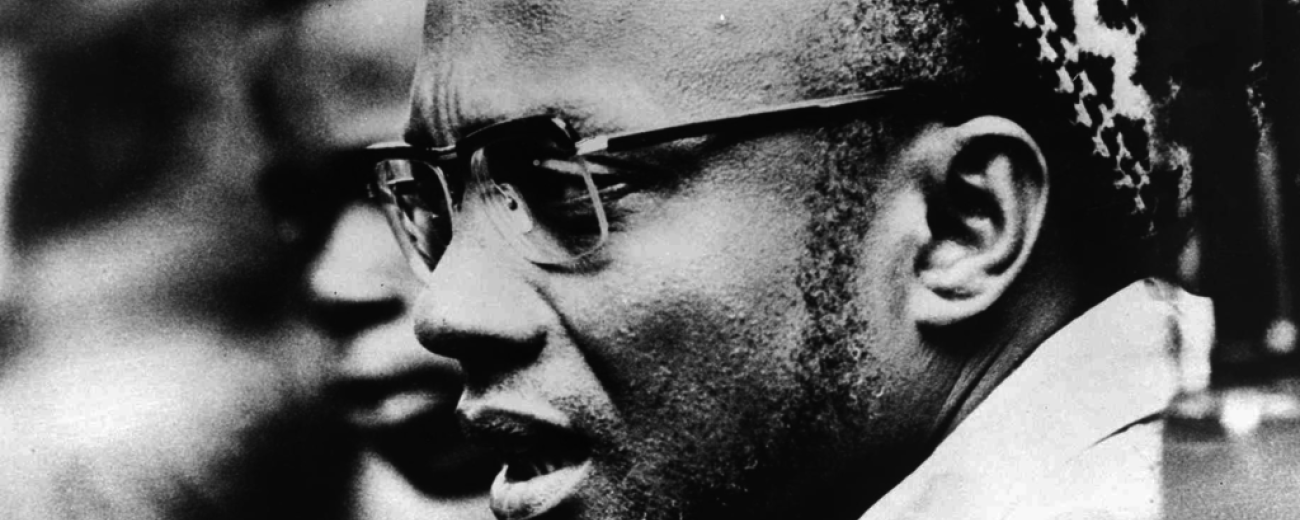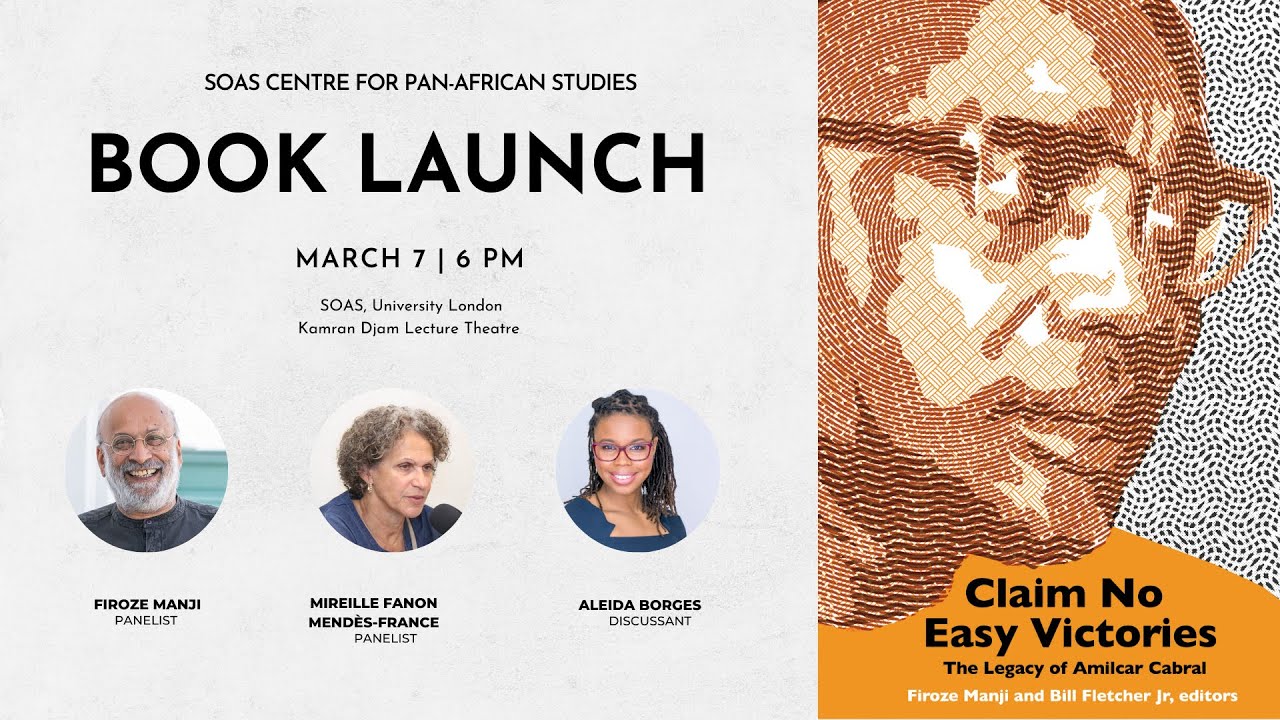
'Claim No Easy Victories’: Centennial Reflections on Amilcar Cabral's Legacy

Key information
- Date
- Time
-
7:00 pm
- Venue
- SOAS, University of London
- Room
- Djam Lecture Theatre
- Event type
- Event highlights
About this event
The SOAS Centre for Pan-African Studies is pleased to welcome Claim No Easy Victories: The Legacy of Amílcar Cabral co-editors Dr. Firoze Manji and Mireille Fanon Mendès-France for an evening of reflection with Dr Aleida Borges on the thought and practice of Amílcar Cabral to celebrate the launch of the second edition of the book.
Drawing from the knowledge of the book’s contributors, the panel will bring to the fore key facets of Cabral’s work, some less explored than others, and their relevance to contemporary liberation movements, across and beyond the African continent. These include but are not limited to:
- Cabral and militarism in a time of ‘‘feel-good militarism’’ in Africa
- Cabral and transnational solidarity and Pan-Africanism
- Cabral and decolonial pedagogy and knowledge production
- Cabral and the central role of women and youth in liberatory thought and praxis
Amílcar Cabral, poet, agronomist, liberation philosopher, and revolutionary leader of the anticolonial liberation struggle of Guinea Bissau and Cape Verde was born on September 12, 1924 in Bafatá, Guinea-Bissau. While well known in the Lusophone world, the figure of Cabral and his contemporaries remain obscured in the Anglophone world despite a growing body of literature in the past two decades.
2024, the centenary year of his birth, offers an opportunity for his re(introduction) and for reflections on the continuous relevance of his thought and practice for today’s freedom movements; from the West Africa Coup Belt, Palestine, Sudan to Congo.
About the book
Claim No Easy Victories brings to life the resonance of Amílcar Cabral’s legacy beyond the shores of West Africa. His profound influence on the pan-Africanist movement and the Black liberation movement in the United States and the English-speaking world spans the ages—and is only growing in an era of renewed anti-imperialist internationalist struggle. In this unique collection of essays, radical thinkers from across Africa, the United States, and internationally commemorate Cabral’s life and legacy and his relevance to contemporary struggles for self-determination and emancipation.
Understanding Cabral then and now sheds light on the necessity of grounding radical change in the creation of theory based on the actual conditions within which movements develop. The book features contributions by: Angela Davis, Mireille Fanon Mendès-France, Olúfémi Táíwò, Redy Wilson Lima, Samir Amin, Asha Rodney, Miguel de Barros, Patricia Godinho Gomes, Augusta Henriques, Bill Fletcher Jr (Ed.) and Firoze Manji (Ed.)—and others.
About the speakers
Dr Firoze Manji is a Kenyan with more than 40 years’ experience in international development, health and human rights, and is the publisher of Daraja Press. He is currently an Adjunct Professor at the Institute of African Studies at Carleton University. He is also the founder and former editor-in-chief of Pambazuka News and Pambazuka Press.
He has published widely on health, human rights, development and politics. He is co-editor, with Sokari Ekine, of African Awakenings: The Emerging Revolutions and is a member of the editorial review board of Global Critical Caribbean Thought and of Nokoko, journal of the Institute of African Studies at Carleton University.
Mireille Fanon Mendès-France is a scholar of decoloniality, UN expert and former chair of the UN working group on people of African descent, jurist and human rights activist who has been involved with the solidarity and struggle of the people of Palestine, political prisoners and issues of reparation to name a few. She has taught at Paris Descartes University and was a Visiting Professor at the University of California, Berkeley in international law and conflict resolution.
In 2009, she received the Human Rights Prize from the Council for Justice, Equality and Peace. She is the eldest daughter of Frantz Fanon and the Founder of the Frantz Fanon Foundation which she chairs.
Dr Aleida Borges is a Visiting Lecturer at the African Leadership Centre at King’s College London where she leads the Grassroots Women Leaders research stream at the Global Institute for Women’s Leadership and teaches on Decoloniality and the Global South. She is also the Chair of the African Politics specialist group at the Political Studies Association (PSA UK). As a scholar of decoloniality, her research offers critical perspectives at the intersection of politics, gender and decoloniality to examine the multifaceted dimensions of inequality within political, social, and organisational contexts in Africa and parts of the Global South.
She has previously researched everyday practices of youth political participation in Lusophone Africa and regularly co-writes Afrobarometer dispatches focusing on Cabo Verde.
Chair: Aurore Iradukunda




